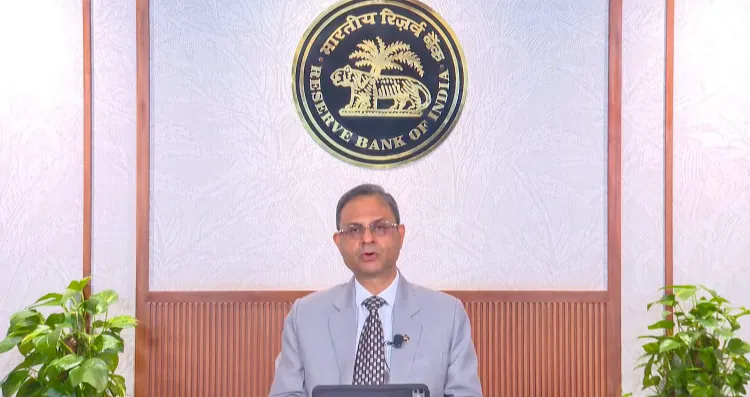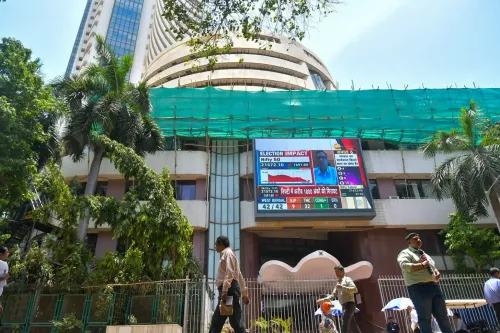Is the Indian Economy a Crucial Driver of Global Growth?

Synopsis
Key Takeaways
- Indian economy remains resilient despite global challenges.
- Strong macroeconomic fundamentals support growth.
- RBI emphasizes the importance of financial stability.
- Non-banking financial companies are also in good health.
- Ongoing monitoring of inflation trends is crucial.
New Delhi, June 30 (NationPress) In the face of an unpredictable and challenging global economic environment, the Indian economy continues to be a significant engine of global growth, supported by robust macroeconomic fundamentals and sensible policies, as stated by the Reserve Bank of India (RBI) on Monday.
In the June 2025 edition of its 'Financial Stability Report (FSR)', the Reserve Bank noted that ongoing uncertainties in economic and trade policies are putting the global economy and financial system's resilience to the test.
“Financial markets remain unstable, particularly in core government bond sectors, influenced by changing policies and geopolitical scenarios. Additionally, existing vulnerabilities, such as rising public debt and high asset valuations, could exacerbate new shocks,” the report indicated.
Nevertheless, the local financial system is showcasing resilience, bolstered by the solid balance sheets of both banks and non-banking financial companies, according to the Central Bank.
Financial conditions have improved, aided by accommodating monetary policies and minimal volatility in financial markets. The strength of corporate balance sheets also contributes to overall macroeconomic stability.
“The health and resilience of scheduled commercial banks (SCBs) are supported by substantial capital reserves, a multi-decade low non-performing loans ratio, and strong profitability,” the RBI report highlighted.
Results from macro stress tests confirm that most SCBs maintain sufficient capital buffers relative to regulatory requirements, even in adverse stress scenarios. The stress tests further validate the resilience of mutual funds and clearing corporations.
“Non-banking financial companies (NBFCs) continue to be robust, with ample capital reserves, strong earnings, and improving asset quality. The insurance sector’s consolidated solvency ratio also remains above the minimum required threshold,” it mentioned.
In this global context, the Indian economy stands out as a vital contributor to global growth. Its growth momentum is supported by strong domestic factors, sound macroeconomic fundamentals, and prudent policies.
“However, external shocks and weather-related incidents may present downside risks to growth. Conversely, the outlook for inflation appears favorable, and there is increased confidence in the lasting alignment of inflation with the Reserve Bank’s target,” stated Sanjay Malhotra, Governor of the RBI.
Financial sector regulators remain dedicated to safeguarding customers, fostering competition, and encouraging innovation while maintaining a balance between efficiency, growth, and security.
“Financial stability, akin to price stability, is essential, but not sufficient, to enhance India’s growth potential. As guardians of financial stability, we must strive to cultivate a well-functioning financial system that not only ensures macroeconomic stability but also provides financial services efficiently,” said Malhotra.









